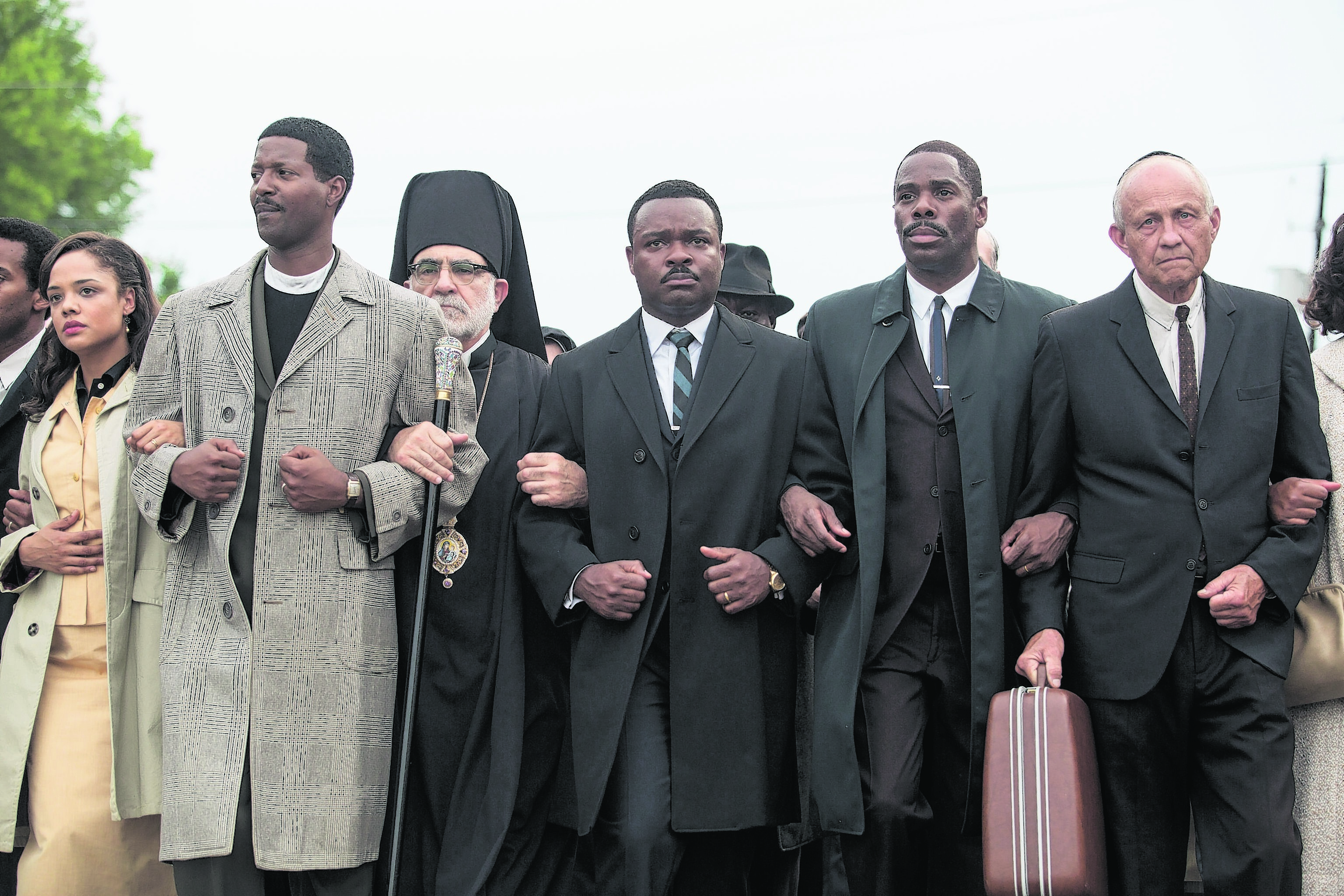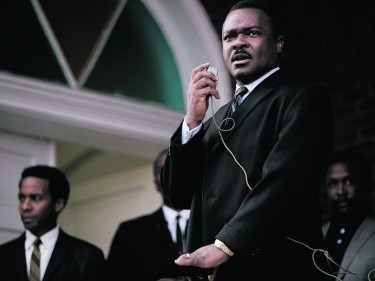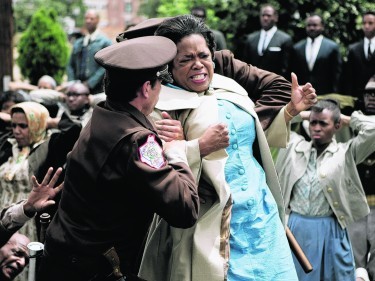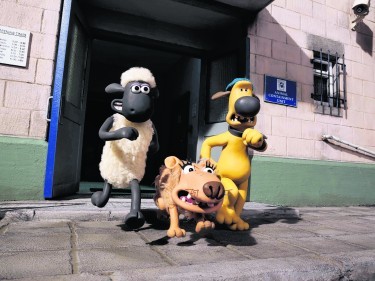SELMA (12A)
4 stars
More than 45 years after the assassination of Martin Luther King jun, director Ava DuVernay honours the memory of the leader of the US civil-rights movement with this impassioned biopic.
While there are lingering doubts about the historical accuracy of Selma, the emotional wallop the film delivers is beyond question.
In particular, the recreation of the iconic march over the Edmund Pettus Bridge chills the blood.
Oxford-born actor David Oyelowo delivers a breakout performance replete with Georgia accent as the activist.
He is mesmerising and would surely have been in Oscar contention as best actor later this month had Paul Webb’s script gifted him a few more barnstorming speeches.
DuVernay opens with a chilling act of violence that exemplifies racial tensions of the era.
In 1960s America, political bureaucracy and prejudice deny the African-American electorate the chance to vote in the forthcoming election in which President Lyndon B. Johnson (Tom Wilkinson) hopes to be returned to the White House by the people.
Martin Luther King jun (Oyelowo) entreats the president to right this democratic wrong, but Johnson and his adviser Lee C. White (Giovanni Ribisi) don’t consider voting rights to be high on their list of priorities.
So King and his team head to the community of Selma, Alabama, to lead a peaceful protest march with their friends from the Student Nonviolent Coordinating Committee (SNCC).
The president seeks a private audience with J. Edgar Hoover (Dylan Baker), the first director of the FBI, to discuss how to remove this thorn from his side.
“We can weaken the dynamic, dismantle the family,” explains Hoover, referring to tensions between King and his wife, Coretta Scott King (Carmen Ejogo).
In Selma, local police under the jurisdiction of Governor George Wallace (Tim Roth) attack protesters with batons as TV cameras capture the brutality for horrified viewers.
Consequently, pressure grows on Johnson to intervene, while King takes temporary leave of his wife and family to spearhead a second march.
Selma skilfully ebbs and flows between events in Alabama and Washington, relentlessly cranking up the tension between figures on both sides of the debate.
Oyelowo is supported by a terrific ensemble cast, including Ejogo as the dutiful wife, who stands by her man despite his dalliances away from home.
“Do you love me?” asks Coretta cooly in one of the film’s most memorable scenes. “Do you love the others?”
Roth chews scenery as the governor who believes resistance should be met with extreme force, while Wilkinson brings a touch of desperation to the most powerful man on Capitol Hill.
Luther King jun had a dream and, through the lens of DuVernay’s film, we are minded that we must all continue to chase it.
SHAUN THE SHEEP MOVIE (U)
4 stars
Bristol-based Aardman Studios works its stop-motion animated magic on a colourful big-screen adventure for the mischievous sheep, who first appeared in Wallace and Gromit’s 1995 escapade A Close Shave and has been baad to the bone in a self-titled CBBC series since 2007.
Drawing loving inspiration from other Aardman films including Chicken Run, Shaun the Sheep Movie is a shear delight, melding slapstick and subtler humour to appeal to young fans and their wranglers.
Directors Mark Burton and Richard Starzack shepherd this boisterous romp through various twists and turns at a breathless pace.
They litter the screen with wry visual gags, including an airborne cow clearing the roof of the Over the Moon public house.
Stop-motion visuals burst with colour, and action sequences are orchestrated with mind-boggling technical precision.
As usual, Shaun is at the centre of the madcap action.
The flock grows tired of the daily routine on Mossy Bottom Farm under the watchful eye of Bitzer the sheepdog. So the animals hoodwink the farmer into taking a well-deserved day off so they can do the same.
Unfortunately, this cunning plan goes awry and the farmer ends up with a nasty bout of memory loss after a high-speed journey to the big city inside a runaway caravan.
As with other Aardman offerings, the animators’ imprints are occasionally visible in the expressive clay protagonists, which is part of the film’s undeniable charm.
Ewe won’t be disappointed.



